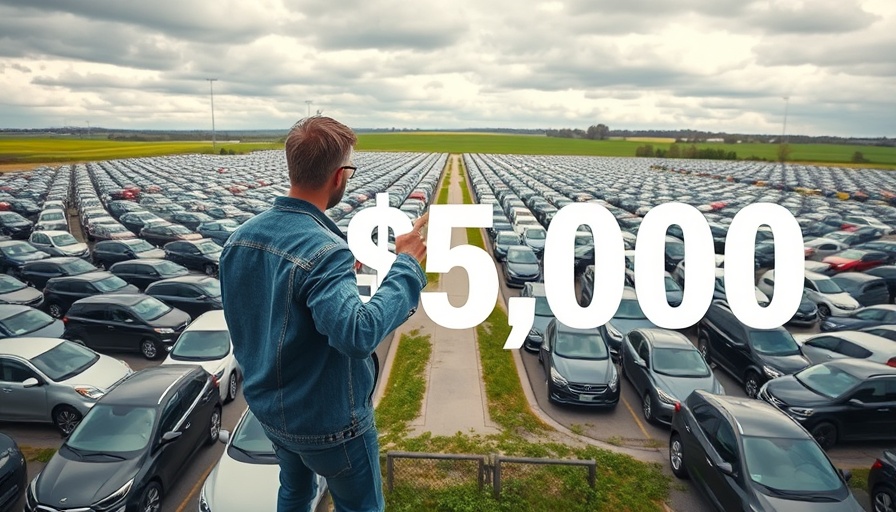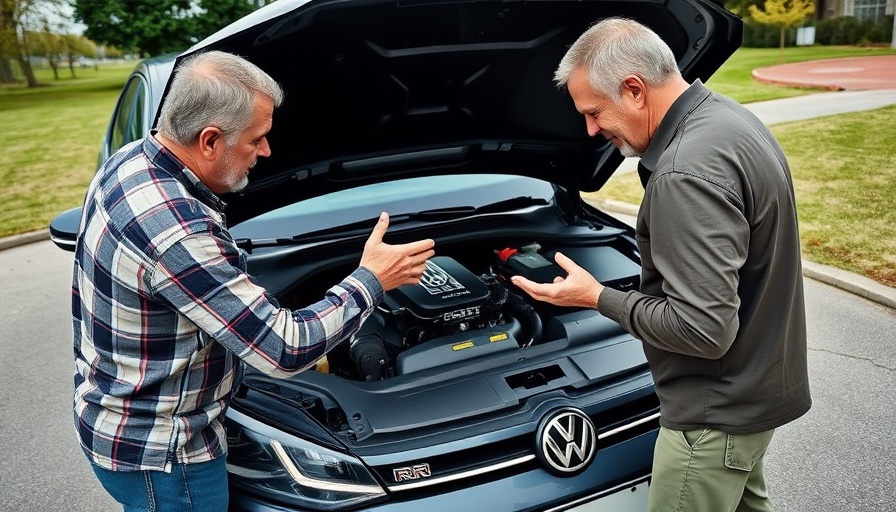
Why Car Buyers Are Struggling with Negative Equity
The current car market is presenting numerous challenges for buyers, especially with an alarming statistic highlighting that one in four trade-ins involve negative equity. This means that many people owe more on their vehicles than what they receive upon trading them in, with the average amount being over $6,700. For many buyers, this trend of trading in vehicles while still far beneath their value could lead to deeper financial problems, burdening them with mounting debts.
In 'America is About to Find Out Car Prices Just Got Insane,' the discussion dives into the tumultuous automotive market, prompting a deeper analysis of consumer choices and economic impacts.
Leasing as a Strategic Alternative
In light of these difficulties, experts suggest that leasing is a more strategic option than outright purchasing a car. Leasing typically comes with lower monthly payments and less initial financial commitment, potentially keeping buyers out of a negative equity situation. Volkswagen’s recent promotion on its electric ID.4, leasing at only $129 a month, highlights the affordability available in the leasing market, allowing consumers to enjoy new vehicles without crippling debt.
The Impact of National Economic Policies
In addition to market factors, national economic policies, particularly tariffs, are playing a significant role in shaping the automotive landscape. Volkswagen recently announced a staggering $1.5 billion loss attributed to U.S. tariffs. This economic pressure has led to dwindling profits and is expected to exacerbate the situation in the coming months as impending tariff hikes loom. For consumers, this might translate to even higher car prices, further complicating the decision to buy or lease.
Consumer Awareness: Gasoline Prices and Electric Alternatives
For prospective buyers, awareness of fluctuating these prices is also essential. As of July 2025, gas prices surged in various regions, with some areas in California reaching nearly $6 a gallon. This creates additional concerns for individuals contemplating a new car purchase, especially when considering fuel efficiency in electric alternatives. However, the choice between electric and traditional vehicles remains contentious, as electric vehicles come with their own pitfalls such as inconsistent charging network availability and complicated user interfaces.
The Case Against Electric Cars
Numerous grievances concerning electric vehicles are also surfacing. From charging difficulties to unusual parking regulations, consumer frustration is mounting. In one anecdote, a driver received a parking ticket for backing into a charging station due to their car’s design. Such issues underline the importance of thoroughly considering all aspects before transitioning to electric cars.
This examination of the current car market, the financial pressures involved, and the complexities surrounding vehicle choices serves as a reminder that potential buyers should approach purchases with caution. Whether considering a new car, leasing, or exploring electric options, understanding the implications of each decision is vital in our evolving automotive landscape.
 Add Row
Add Row  Add
Add 




Write A Comment